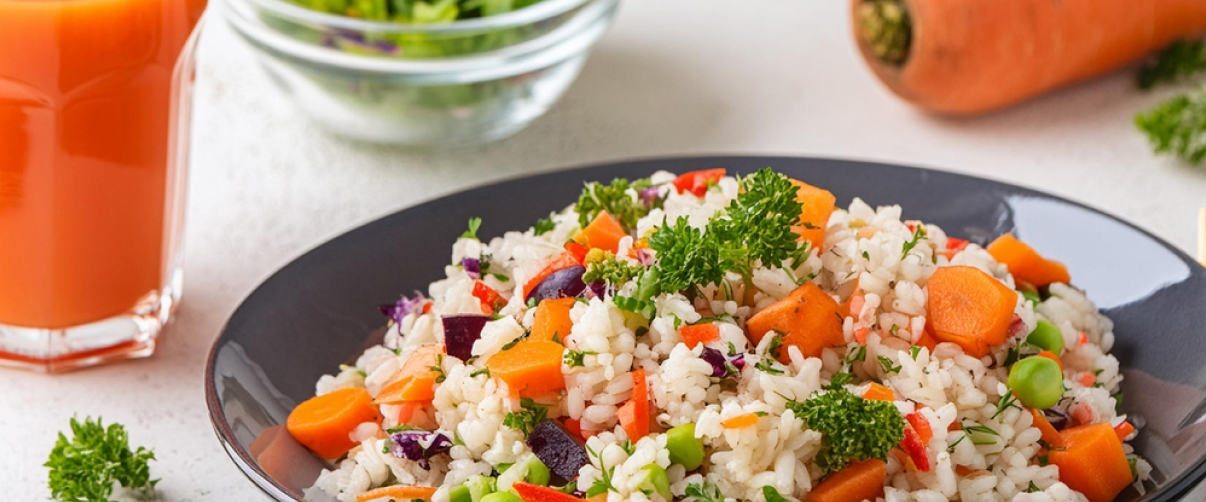In a world where the global population is projected to increase by 2 billion by 2050, our food choices have never been more critical. How we eat not only impacts our health but also the health of our planet. Sustainable eating is about making food choices that are nutritious, eco-friendly, and mindful of future generations.
Sustainable Eating: Making Nutritious Choices Good for You and the Planet

Why Sustainable Eating Matters
Our current food systems are a significant contributor to environmental degradation. Food production accounts for about a quarter of global greenhouse gas emissions, with livestock farming alone generating nearly 15% of all man-made emissions. By shifting towards sustainable eating habits, we can reduce our carbon footprint, conserve natural resources, and promote biodiversity.
Embracing Plant-Based Meals
One of the most impactful ways to eat sustainably is by adopting more plant-based meals. Plant-based diets produce fewer greenhouse gases compared to meat-heavy diets. Reducing meat and dairy consumption not only lowers your carbon footprint but also contributes to improved health outcomes.
Support Local and Seasonal Produce
Shopping for in-season produce from local farmers reduces the resources needed for transportation. It supports local economies and provides fresher, more nutritious options. Local, seasonal foods often require less energy to produce and transport, thereby minimizing environmental impact.
Minimize Food Waste
Nearly 40% of food in the U.S. goes uneaten, contributing to unnecessary greenhouse gas emissions from wasted resources. Planning meals, using leftovers creatively, and composting can significantly reduce food waste. By being mindful of our consumption, we can make a substantial impact on reducing environmental strain.
Choose Sustainably Sourced Seafood
Overfishing and destructive fishing practices harm marine ecosystems. Opt for seafood that is certified by organizations like the Marine Stewardship Council (MSC). This choice supports sustainable fishing practices that protect ocean life.
Prioritize Whole and Minimally Processed Foods
Highly processed foods often have a larger environmental footprint due to the energy required for manufacturing and packaging. Choosing fresh, minimally processed foods conserves resources and reduces pollution. Additionally, whole foods are generally more nutritious and free from unnecessary additives.
Reduce Packaging and Plastic Waste
Single-use plastics contribute to pollution and harm wildlife. Bring reusable shopping bags, choose products with minimal packaging, and support brands that prioritize sustainable packaging solutions. Small changes in our shopping habits can lead to significant environmental benefits.
Grow Your Own Food
Starting a small garden, even if it’s just herbs on a windowsill, can reduce food miles and packaging waste. Growing your own produce increases awareness of food sources and promotes sustainable practices.
Educate Yourself and Others
Engaging in conversations about sustainability with friends, family, and your community can amplify the impact. Sharing resources, tips, and personal experiences encourages others to make eco-friendly choices.
Take Action with Organizations Making a Difference
Consider supporting or getting involved with organizations dedicated to sustainability:
- World Wildlife Fund (WWF): WWF offers resources and campaigns focused on transforming food systems and promoting sustainable diets.
- One Tree Planted: This organization focuses on global reforestation and provides tips on sustainable living.
Practical Tips to Start Today
- Begin with Small Changes: Swap one meat-based meal a week with a plant-based option.
- Plan Your Meals: Reduces impulse buys and food waste.
- Buy in Bulk: Reduces packaging and often saves money.
- Support Sustainable Brands: Choose companies committed to eco-friendly practices.
- Stay Informed: Educate yourself on the impact of your food choices to make better decisions.
Conclusion
Sustainable eating is not about a complete diet overhaul but about making conscious choices that benefit both your health and the environment. By incorporating more plant-based meals, reducing waste, and supporting sustainable practices, you contribute to a healthier planet. Every small action adds up, and together, we can make a significant difference for future generations.











